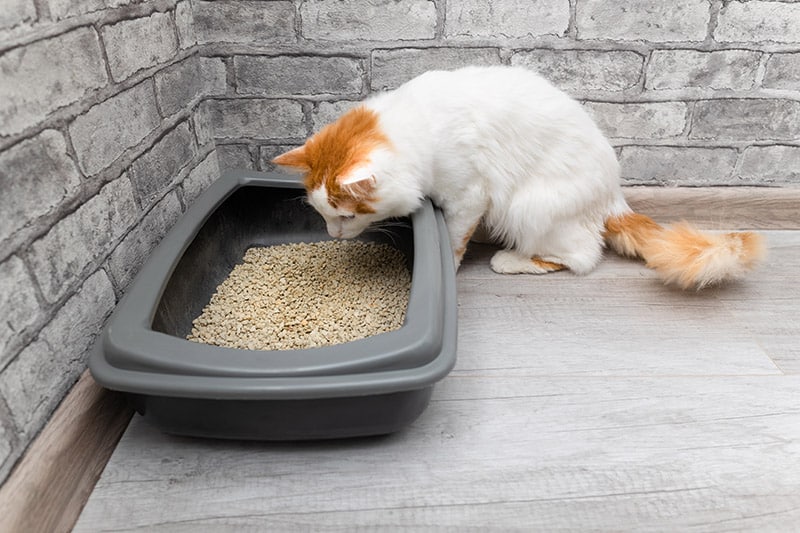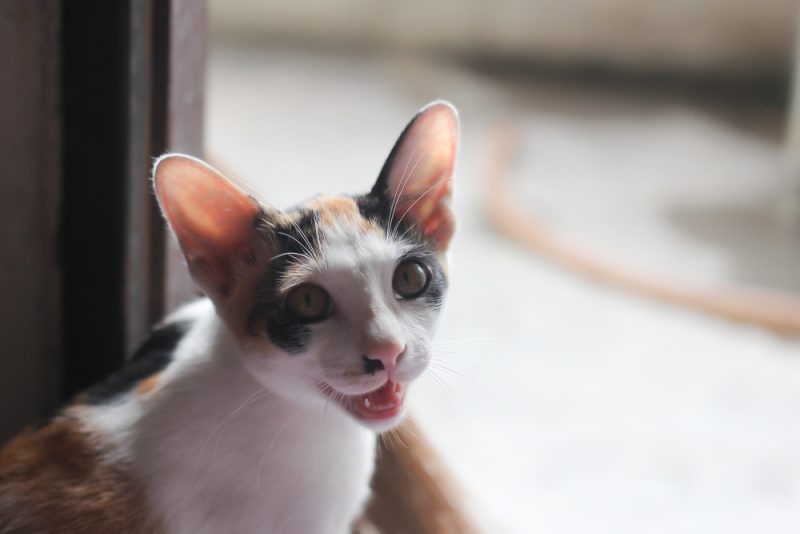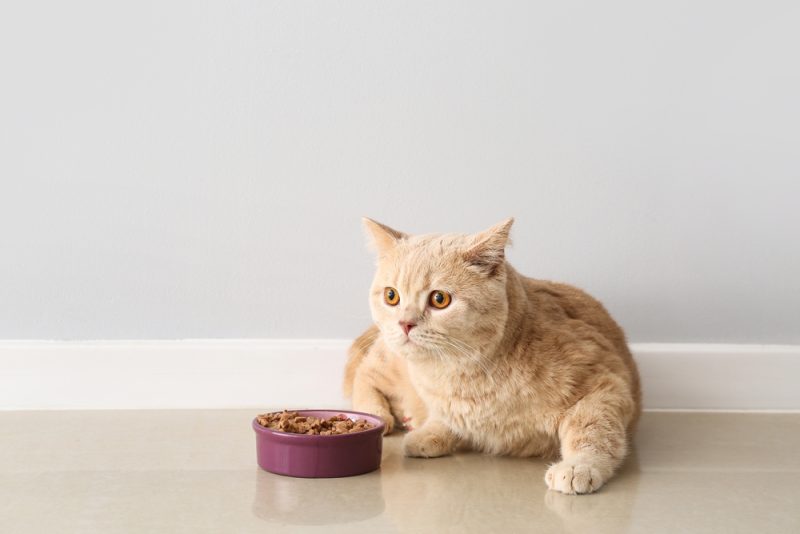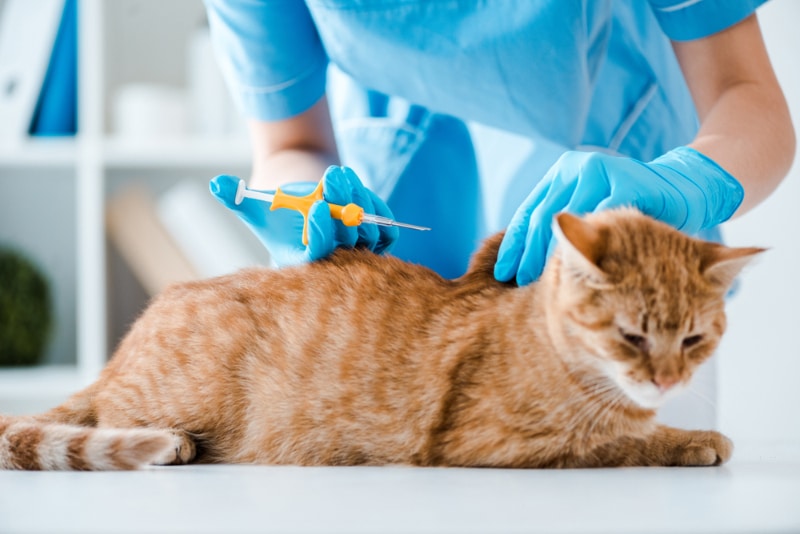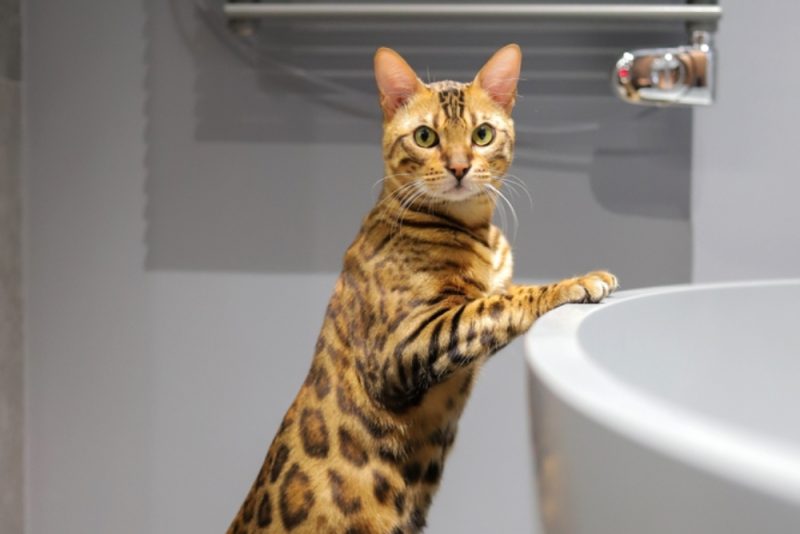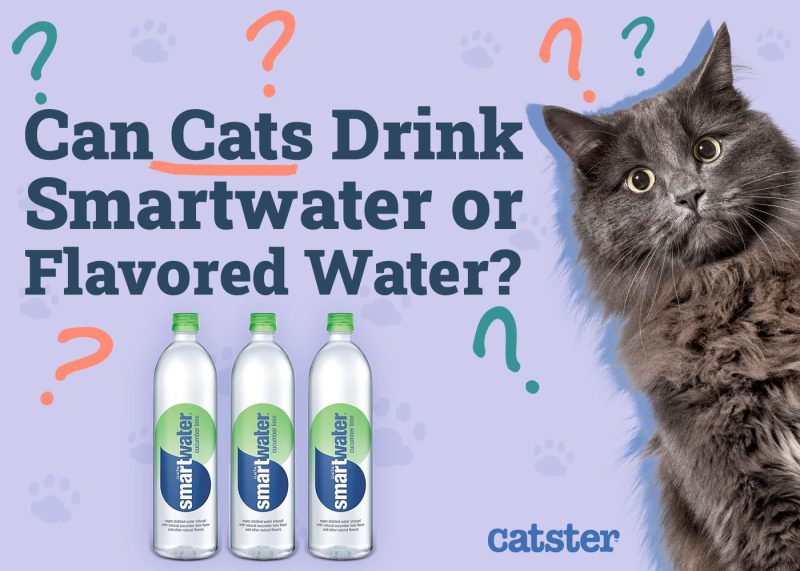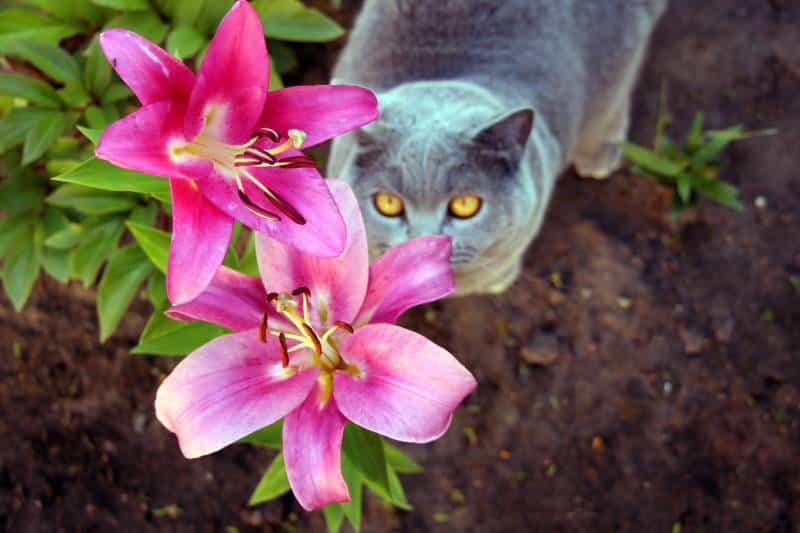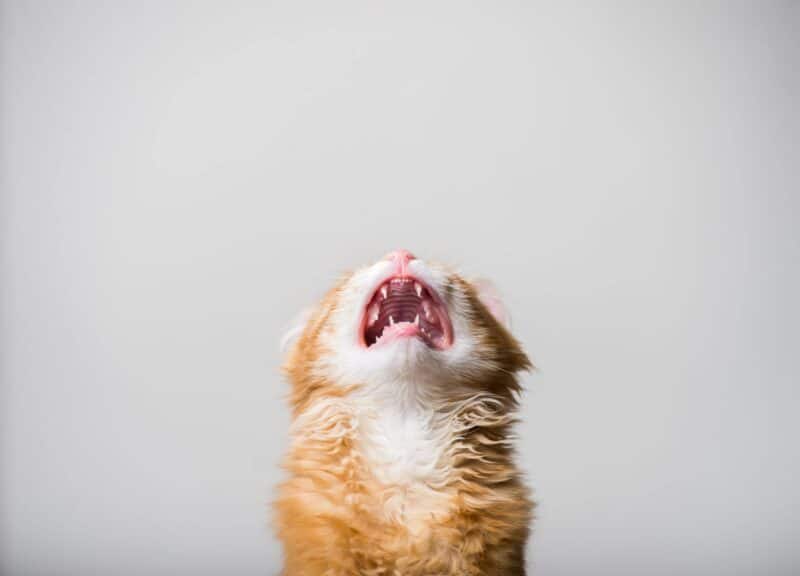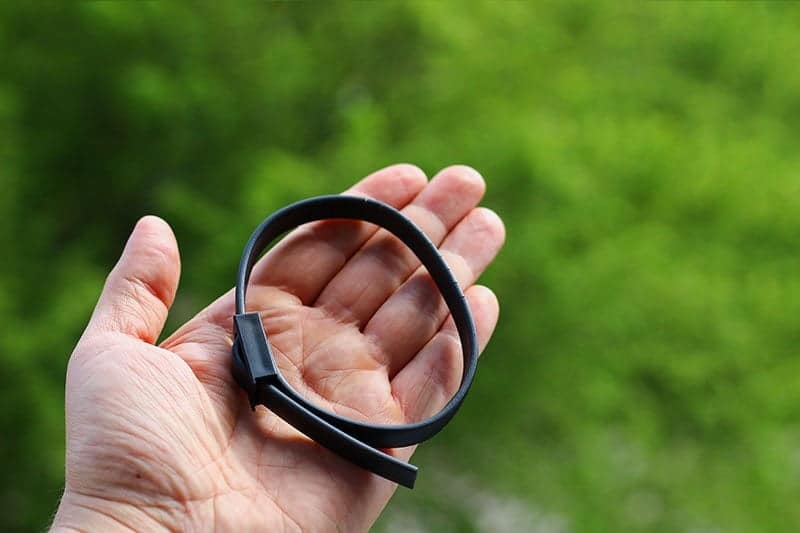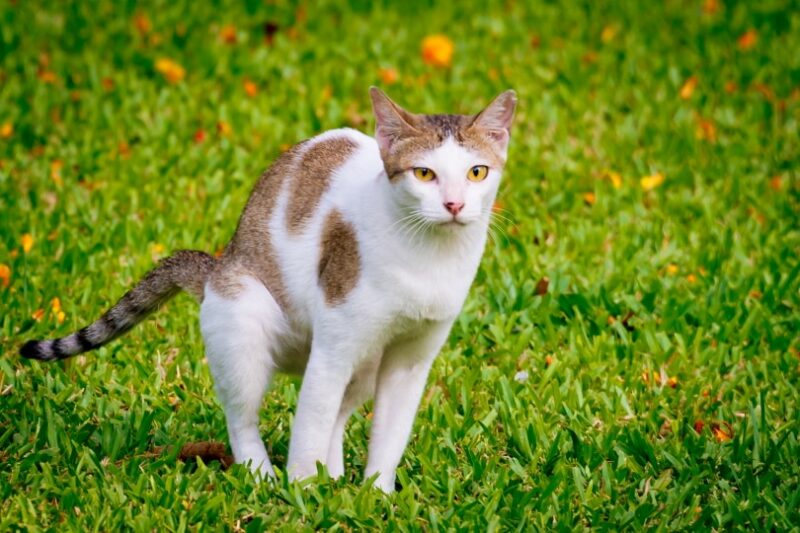Your cat heads to the litter box and cries out rather than urinating. You check the litter box and can’t find evidence that your cat is urinating. Their abdomen feels tense and painful, so you call your vet immediately. What could be causing your cat to have trouble peeing?
If you suspect your cat isn’t able to urinate, they need to be seen by a veterinarian immediately. A blocked cat is a life-threatening condition, and your cat could be in danger of cardiac arrhythmias or even bladder rupture. Your veterinarian will need to work quickly to assess and treat your cat.

Signs of a Blocked Cat
If your cat is blocked, they won’t be able to urinate. In some cases, however, they have a partial blockage and only urinate in small amounts. It’s also important to note that some cases of kidney failure lead to anuria or no urine produced.
Other signs that your cat can’t urinate include:
- Frequently going to the litter box
- Vocalizing, especially when attempting to urinate
- Straining when urinating
- Urinating outside of the litter box
- Distended abdomen
- Painful, tense abdomen
- Hematuria or blood in the urine
- Cloudy looking urine
- Licking genitals excessively
- Vomiting
- Lethargy
- Low heart rate or bradycardia
Both male and female cats can develop urinary tract infections, bladder stones, and kidney disease. Male cats tend to be the most likely of the sexes to develop a urinary blockage. Their urethra tends to be narrower and a little longer than a female cat’s urethra, so there’s a greater chance of a blockage developing.
If your pet is showing these signs, we suggest you speak to a vet.
If you need to speak with a vet but can't get to one, head over to PangoVet. It's an online service where you can talk to a vet online and get the advice you need for your pet — all at an affordable price!


The 6 Possible Reasons Your Cat Can’t Pee
1. Urinary Tract Infections
Urinary tract infections are generally bacterial infections within the bladder. This condition can inflame the bladder walls and make your kitty feel sick. Many cats with urinary tract infections urinate outside of the litter box.
White and even red blood cells come into the bladder to help fight the infection. As your cat urinates, these can form a mucus plug that blocks the urethra, creating a urinary blockage. Urinary crystals, particularly struvite crystals, can form in the presence of a urinary tract infection and contribute to the formation of a plug.
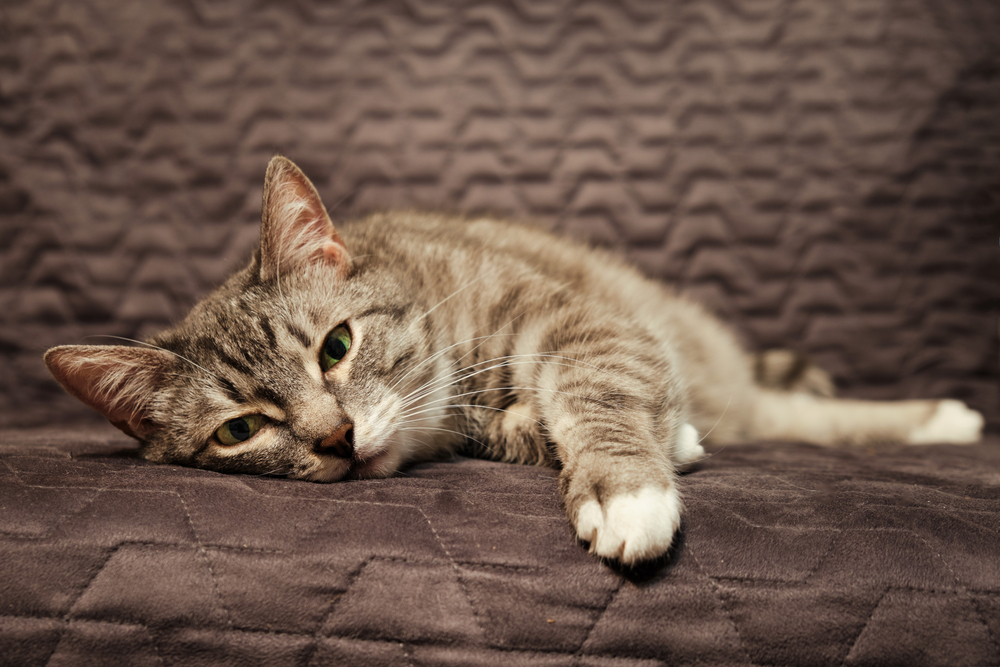
2. Bladder Stones
Bladder stones in cats can form in the presence of a urinary tract infection, but they can also occur independently. Bladder stones can inflame the walls of the bladder and lead to red and white blood cells accumulating in the bladder. These cells, crystals, and even mucus can collect and form a mucus plug that blocks the urethra.
Small stones forming in the bladder can also pass into the urethra and get stuck. Much less likely, stones can block a portion of the bladder called the trigone, leading to an obstruction.
3. Feline Idiopathic Cystitis
Feline idiopathic cystitis is a complex condition in cats often linked to stress. The bladder becomes inflamed, but there’s no evidence of bacteria in cases of feline idiopathic cystitis. Cats with this condition can still develop urethral plugs. In some cases, the muscles of the urethra spasm down, leading to a functional urethral obstruction.
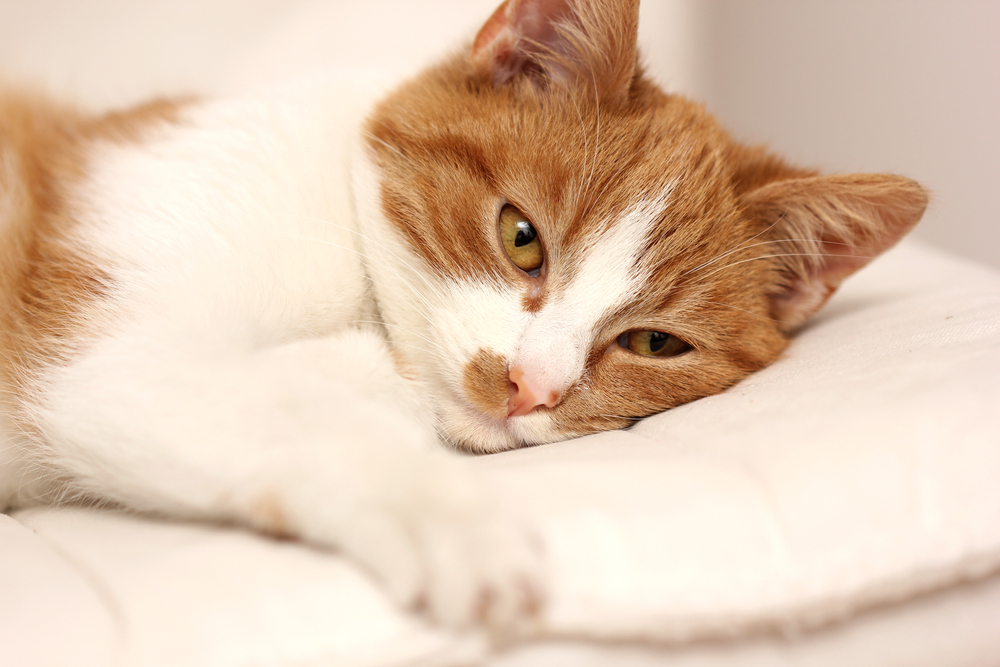
4. Bladder Cancer
Bladder cancer is less common in cats than in dogs. However, it is still an important consideration in a cat having trouble urinating, especially if it has blood in the urine. The most common type of bladder cancer in pets is transitional cell carcinoma.
When a mass forms in the bladder, it can develop in an area called the trigone, which is also where the urethra branches from. These tumors can also lead to red and white blood cells accumulating in the bladder, which could obstruct the urethra.
5. Kidney Failure
A variety of factors can cause kidney failure. Many cats develop renal insufficiency as they age. According to VCA Animal Hospital, 81% of cats older than 15 years have chronic kidney disease.
Age is not the only factor that can contribute to kidney failure. Some toxins, such as antifreeze and plants like lilies, can lead to acute kidney failure. Cats with kidney failure can stop producing urine, a condition known as anuria. In these cases of not producing urine, no obstruction is present.
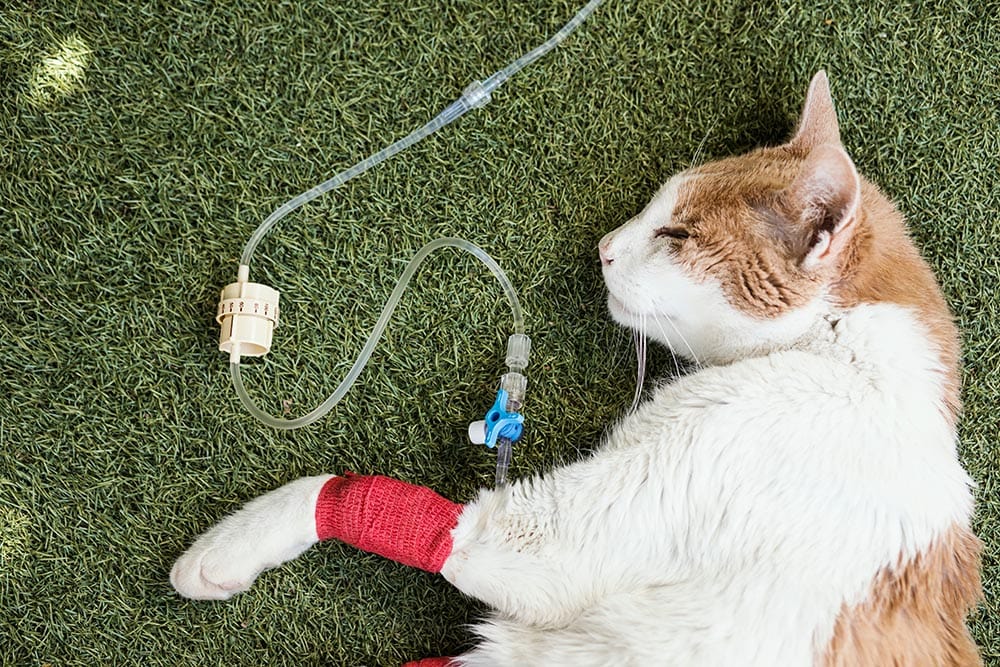
6. Trauma
Your cat could stop urinating if they have a traumatic injury that damages the kidneys, bladder, or urethra. Trauma, such as being hit by a car, can rupture the bladder or tear the urethra. These types of traumatic injuries are life-threatening, and other injuries could also be present, so your cat should be examined by a veterinarian right away.

Diagnosing a Urinary Obstruction or Anuria
If your cat doesn’t appear to be urinating or seems to be having trouble, they should be examined by a veterinarian as soon as possible. Your veterinarian will perform a physical exam, paying close attention to the kidneys and bladder. Some changes they’ll look for include:
- Pain on palpation
- Distended, swollen bladder
- Enlarged or shrunken kidneys
The veterinarian will also check your cat for injuries and listen to their heart and lungs. Arrhythmias can occur if your cat is blocked due to the elevated potassium levels. Your veterinarian will ask questions about possible injuries and toxin exposure. Be sure to tell them how your cat acts at home, such as vocalizing excessively.
Some of the diagnostic tests they will likely run include:
- Blood work
- Urinalysis
- Radiographs (X-rays)
- Ultrasound
These tests will look for evidence of an infection, kidney failure, bladder stones, and more.
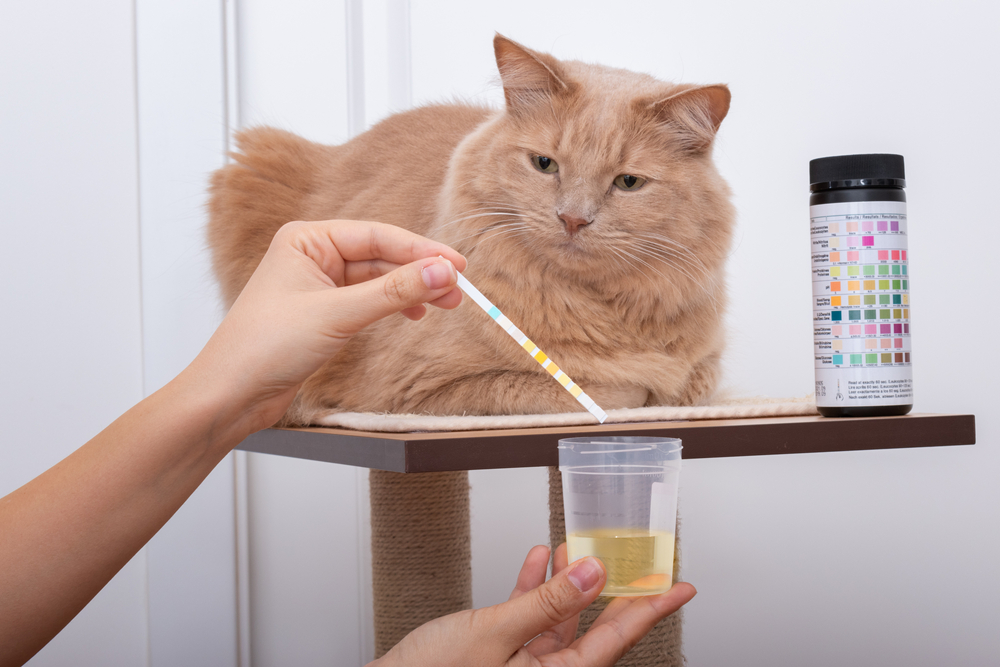
Treatment for Urinary Obstruction in Cats
The treatment for a cat that can’t urinate will depend on the underlying cause. In many cases, your cat will need to be hospitalized to receive IV fluids and have a catheter placed to unblock their urethra.
Surgery could be indicated in some circumstances, such as bladder cancer or a rupture.
Your veterinarian may prescribe medications such as:
- Antibiotics like Clavamox or Convenia for urinary tract infections
- Anti-inflammatories to decrease inflammation, such as Onsior or Meloxicam
- Anti-spasmodics, such as prazosin
- Behavior-modifying medications like fluoxetine for anxiety
Your veterinarian may prescribe a diet like Hill’s c/d or Royal Canin Urinary SO. These diets may help dissolve crystals.
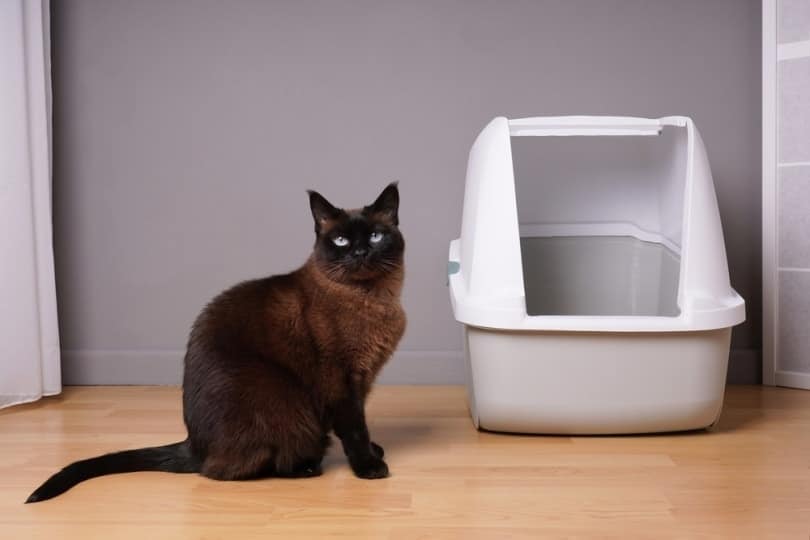

Frequently Asked Questions (FAQ)
What do I do if my cat can’t pee?
There’s no home remedy for cats that are unable to urinate. They should be examined by a veterinarian immediately.
How can I encourage my cat to pee?
In most cases of urinary issues, your veterinarian will recommend that you offer canned food to your cat. Doing so adds extra moisture. You should also encourage them to drink with fresh water and even possibly a water fountain. If your cat is stressed, there are many options to help. Pheromone products, such as Feliway, reduce anxiety. Purina Calming Care probiotics may also help.

Conclusion
If your cat isn’t urinating, contact your veterinarian immediately. There are several potential causes, and they should all be addressed due to the potential for life-threatening complications.
Featured Image Credit: Oleg Opryshko, Shutterstock

